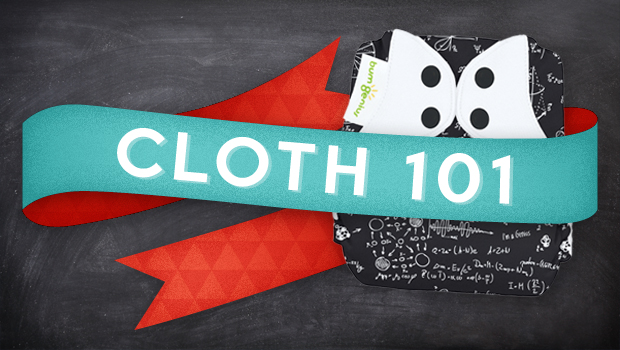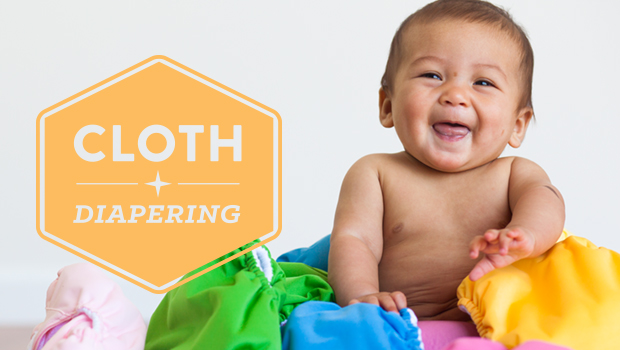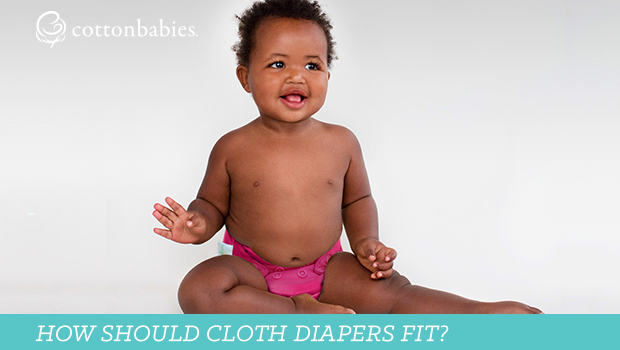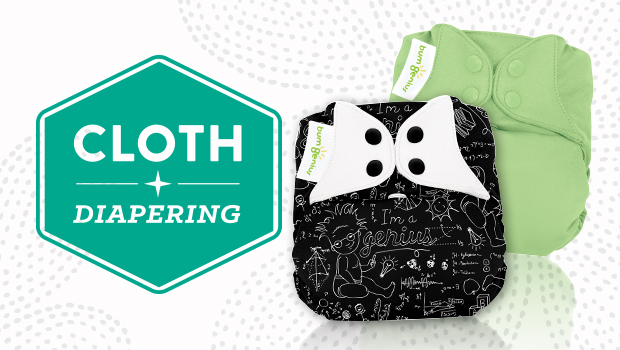
 The great debate: cloth diapers vs. disposables. Which is better? What should I choose? What will work best for my baby? Everyone is different, so the answer on whether to use cloth or disposables always varies.
The great debate: cloth diapers vs. disposables. Which is better? What should I choose? What will work best for my baby? Everyone is different, so the answer on whether to use cloth or disposables always varies.
Let’s break down the benefits of cloth diapers and disposables, so you can make a better decision.
Cloth Diaper Benefits
Cost Savings – It’s no secret that cloth diapers are a better option for your budget. If you want to use cloth diapers for economical reasons, we recommend having at least 24 covers and inserts on hand, which costs $480 dollars. The good news here is that cloth diapers are reusable whereas disposables are not. So really, the $480 is a one-time expense because your baby will most likely be able to use the same cloth diapers from birth to potty training. Depending on your wants and needs, you can even use systems like Econobum that allow you to cloth diaper your baby on a budget from day one. With disposables, you have to pay for a new diaper with each change, which, from birth to potty training, can cost a parent over $1,000 — per child!
Environmental Impact – Did you know that a disposable diaper can take up to 500 years to decompose? Or that a baby in disposable diapers can produce ONE TON of waste? What about the fact that it takes 200,000 trees and 3.4 BILLION gallons of fuel to make disposables each year? Have you also heard that human waste is not supposed to go into our landfills? It’s true. Solids (aka poop) in disposables should be dumped into the toilet (just like cloth!) so that it is treated and removed properly through our water systems. The point here is that cloth diapers are a more eco-friendly option than disposables. Cloth diapers are not thrown out after each use, and the waste is discarded appropriately. With cloth, you can even take it a step further and reduce your energy consumption by line drying.
Cloth diapers are cute! Look at a sposie and then look at a cloth diaper and you tell me which is cuter. I think we all know the winner.
Safer for baby – Disposable diapers are made with potentially harmful ingredients like petroleum, dioxin, chlorine, bleaches and more. BTW, dioxin is a carcinogenic chemical that has been linked to cancers and is banned in most countries. Do you want these chemicals touching your baby’s delicate skin? Cloth diapers do not contain harmful ingredients to become absorbent like disposables. In fact, many cloth diapers are made from natural fibers like organic cotton and hemp. Some people have found that the materials in cloth diapers have also helped decreased rashes since most are caused by a sensitivity to the chemicals found in disposables.
Convenient and Available – When you use cloth diapers, your diapers will be there. All the time. You will never have to make a midnight run to the convenience store to get more diapers for your little one. Now, whether your diapers are clean when you need them, that’s a different story 😉
NO. MORE. BLOWOUTS. – Cloth diapers feature a secure fit and it is very rare that your baby will have a blowout in one.
 Disposable Benefits
Disposable Benefits
Okay, I need to be honest. I can’t find really a reason to use disposables over cloth. But, there are some situations where a disposable diaper may come in handy.
Traveling – You do not want to deal with cloth on vacation. I get that, so disposables may come in handy when you’re away from home. There are some cloth diaper systems, like Flip, that have a disposable insert option to make cloth diapering convenient — anywhere 😉 You can even use pre-measured packs of bumGenius Detergent to wash on the go.
Rashes or Illnesses – When the inevitable rash or cold happens, you may need to use an antibiotic, cream or lotion to treat it. Parents often opt to use disposables during this time to avoid any contamination, transfer or staining. If your baby gets a cold or rash, I have a secret to share: you can also use cloth diapers during this time with a barrier or a fleece liner.
Medical Necessities – There could be a medical diagnosis that forces your baby to use disposables. Let your doctor make that call.




Comments
Comments are closed here.